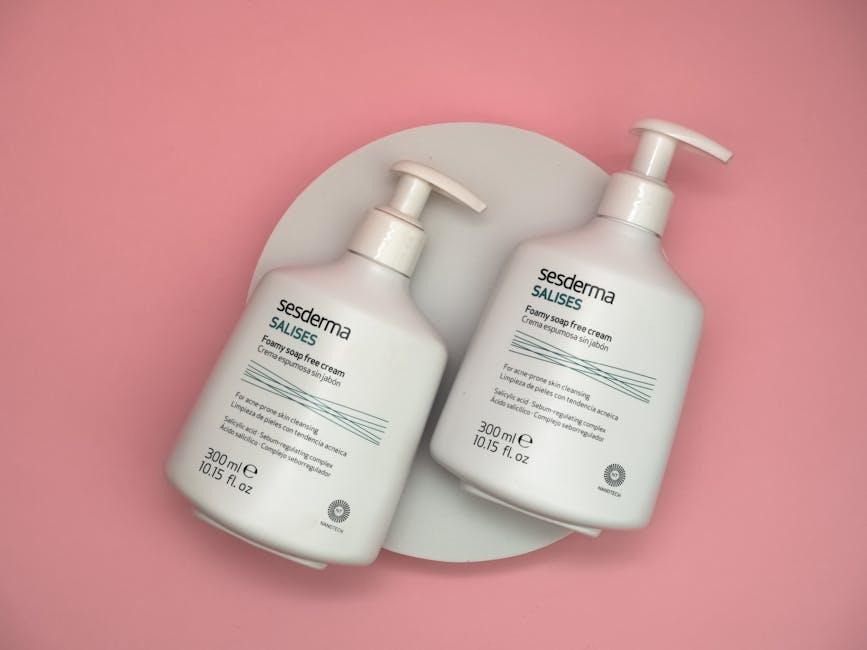In the delicate tapestry of human skin, hyperpigmentation often weaves its own complex patterns, leaving many searching for ways to balance this natural artistry. As one of the most common skin concerns, hyperpigmentation can affect anyone, regardless of age or skin type, and arises from a variety of causes—from sun exposure to hormonal changes. But fear not, for the journey to a more even skin tone is not only possible but can be navigated with a few thoughtful steps. In this article, we will explore practical and effective strategies to both prevent and reduce the appearance of those persistent dark spots, offering a roadmap to help you restore harmony to your skin’s unique canvas. Whether you’re a seasoned skincare enthusiast or just beginning your journey, these insights will empower you to take control of your skin’s story.
Understanding the Causes of Skin Hyperpigmentation
Skin hyperpigmentation can arise from a variety of factors, and understanding these can be crucial in managing its appearance. Sun exposure is one of the most common causes, as UV rays trigger an overproduction of melanin, leading to darker patches. Protecting your skin with broad-spectrum sunscreen can help mitigate this effect. Another cause can be hormonal changes, often seen in pregnancy or with the use of birth control pills, leading to conditions like melasma. Additionally, post-inflammatory hyperpigmentation can occur after an injury or inflammation to the skin, such as acne or eczema.
Other contributing factors include certain medications, which can increase sensitivity to sunlight, and genetic predisposition, which may make some individuals more susceptible to developing pigmentation issues. Lastly, aging naturally results in an uneven distribution of melanin, often manifesting as age spots. Being aware of these causes allows for a more tailored approach to prevention and treatment. Consider integrating protective measures such as:
- Applying sunscreen daily.
- Wearing protective clothing and hats.
- Using skincare products with ingredients like vitamin C and niacinamide.
- Consulting with a dermatologist for personalized advice.
Effective Skincare Ingredients for Pigment Control
Harnessing the power of effective skincare ingredients can make a significant difference in managing and reducing unwanted pigmentation. Among the top contenders, Vitamin C stands out for its brightening properties, helping to fade dark spots and even out skin tone. Another powerhouse is Niacinamide, known for its ability to inhibit melanin production and enhance the skin’s barrier function. For those seeking a more targeted approach, Alpha Arbutin is a gentle yet potent agent that specifically addresses hyperpigmentation without irritating the skin.
Incorporate retinoids into your routine to accelerate cell turnover, promoting the shedding of pigmented cells and revealing fresher skin beneath. Licorice extract also deserves a spotlight for its natural ability to lighten hyperpigmentation and soothe the skin. Don’t overlook the importance of sunscreen; daily application of broad-spectrum SPF is crucial in preventing further darkening of existing spots and shielding the skin from future damage. To maximize results, consider integrating a chemical exfoliant like AHAs or BHAs to help remove dead skin cells and enhance the absorption of active ingredients.

Lifestyle Adjustments to Minimize Hyperpigmentation
Making thoughtful adjustments in your daily routine can significantly impact your skin’s health and appearance. One of the most effective ways to minimize hyperpigmentation is by incorporating a comprehensive sun protection strategy. Wearing broad-spectrum sunscreen with at least SPF 30, even on cloudy days, is crucial. Complement this by wearing wide-brimmed hats, sunglasses, and clothing with UPF (Ultraviolet Protection Factor) when you’re outdoors. Consider adding antioxidants like vitamin C to your skincare regimen to boost your skin’s defense against UV damage.
Diet also plays a pivotal role in maintaining even skin tone. Embrace a balanced diet rich in fruits and vegetables that are high in antioxidants, such as berries, leafy greens, and citrus fruits. Staying hydrated is equally important; aim to drink at least eight glasses of water daily to help your skin maintain its natural glow. Additionally, be mindful of habits that might exacerbate pigmentation issues, such as smoking or excessive alcohol consumption, as they can compromise skin health and increase oxidative stress.

Professional Treatments for Lasting Results
When it comes to achieving a more even complexion, professional interventions can make a significant difference. Dermatologists and skincare specialists offer an array of treatments designed to address the root causes of hyperpigmentation and deliver enduring results. Chemical peels are a popular choice, utilizing exfoliating acids to remove layers of pigmented skin and reveal fresher skin beneath. For those seeking a more targeted approach, laser therapy can precisely address areas of discoloration, breaking down excess melanin with minimal impact on surrounding tissue.
In addition to these treatments, consider exploring options like microdermabrasion and intense pulsed light (IPL) therapy. These techniques can be tailored to suit various skin types and conditions, offering versatility and effectiveness. It’s crucial to consult with a qualified professional who can customize a treatment plan based on your unique needs. By incorporating professional treatments into your skincare routine, you can achieve a more balanced and luminous complexion that stands the test of time.






























